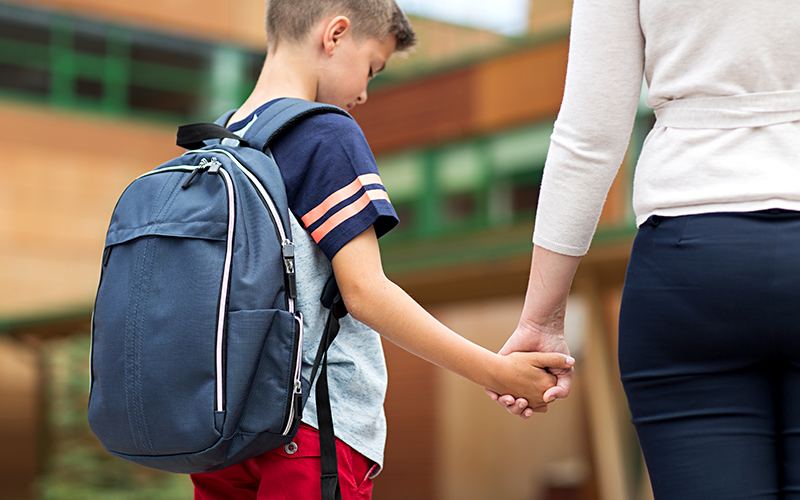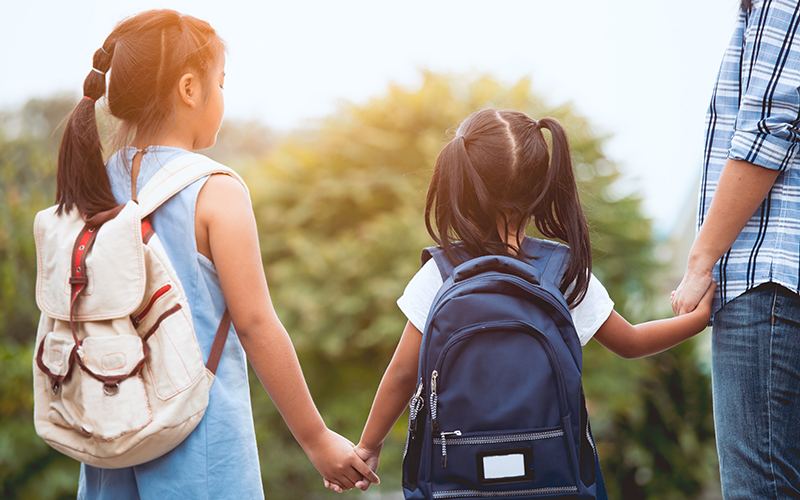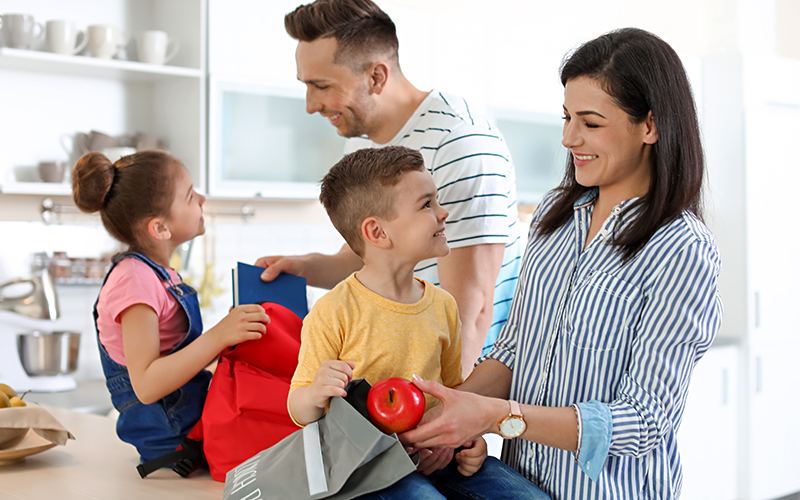Returning to school after summer vacation can be an exciting time, but it can also be stressful for kids and their parents. The start of school may be especially challenging for children who are starting at kindergarten or a new school. Some anxiety is a normal response—most kids experience mild back-to-school uneasiness that gradually fades once they meet their teacher and settle in to class.
Here are some tips for parents to help your child with back-to-school anxiety so they can prepare for a successful new school year.
Listen to their concerns
Whether it is getting a new teacher, schoolwork, dealing with a bully, or missing a friend, listen carefully and avoid dismissing their fears. Kids often have worries! Validate their feelings and give them gentle reassurance that everything will be fine—but don’t overdo it. Keep the conversation short and casual.
Re-introduce term-time routine
After the laid-back, fun-filled summer months of playtime, sleep-ins, and family outings, the transition back to a routine can be challenging. Sometimes it’s met with a lot of resistance—not just for children! A week or two before school begins, start to re-introduce school year routines gradually such as picking out clothes the night before, waking up, eating, and going to bed at regular times.
Schedule a rehearsal
Much like adults are often advised to do when preparing for an important job interview, a trial run before the real thing can go a long way towards easing anxiety. Do a walk-through of your kid’s daily route to school. If you can meet their new teacher, walk the halls, and visit their new classroom before term starts, take advantage of the opportunity. Becoming familiar with the surroundings will prepare them for the first day of school and alleviate any fears of the unknown as will seeing a familiar face on the first day!
Get them excited to see their classmates
Arrange a playdate or two with some of their school friends before school starts. Research shows that the presence of a friend during school transitions can improve children’s academic and emotional adjustment.
Plan a fun treat
Give your child something fun to look forward to after the first week of school. It could be a trip to the movies or a bowling alley or to the swimming pool. Perhaps invite one of their school friends to join them! Give them something to look forward to, even though they have to go back to school!
If your child needs extra support to make a successful transition, let someone at school know — the teacher, an aide or the principal. Anxiety symptoms that persist beyond the first month of term may require consultation with an expert.








